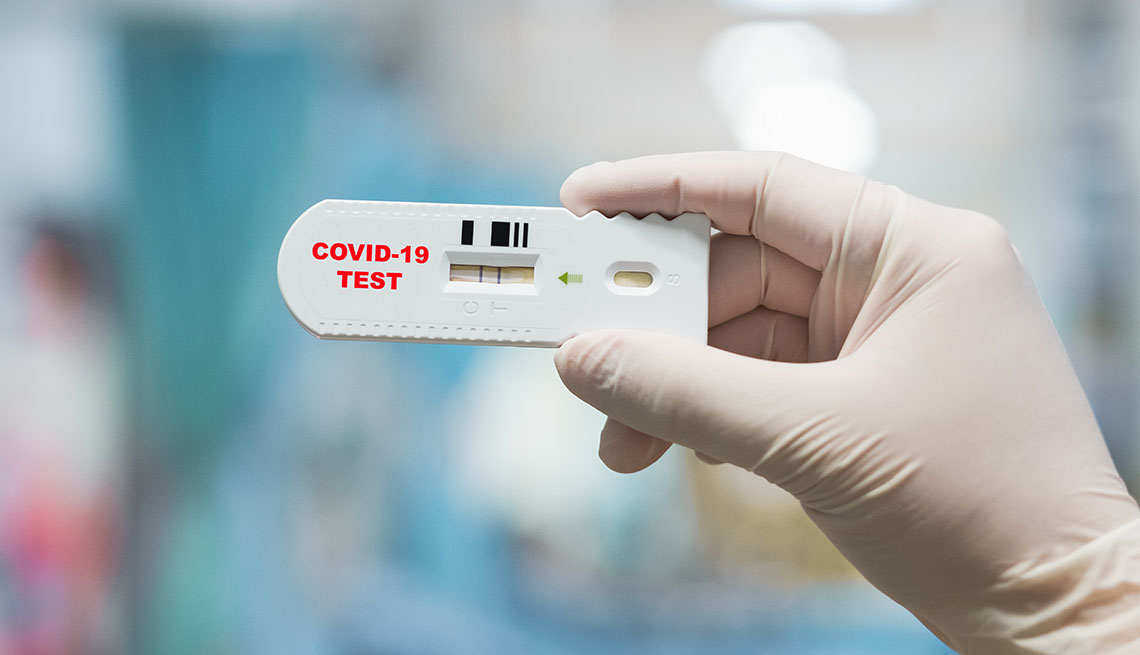
Simple over-the-counter home tests needed to slow covid-19 spread
- Select a language for the TTS:
- UK English Female
- UK English Male
- US English Female
- US English Male
- Australian Female
- Australian Male
- Language selected: (auto detect) - EN
Play all audios:

Even so, experts say it's going to take an overhaul of the country's testing framework to get these tests in the hands, and homes, of everyday Americans. The type of test Mina and
other experts are championing is different from the at-home tests currently available, which still require the user to mail a saliva sample or nasal swab to a lab for processing. It's
also different from the rapid tests that are administered in health care settings and long-term care facilities to diagnose patients at the point of care. While these tests don't need
to be sent away to a lab for analysis, they still rely on health care personnel and on-site instrumentation for results. Mina likened this type of testing to a Nespresso machine:
“There'll be a big start-up cost to get it going, and then each individual test will be expensive,” he said. What he wants to see is something more akin to “instant coffee” for the
masses — an over-the-counter test that costs no more than a few bucks a pop and doesn't need a machine to put out a positive or negative reading, similar to a pregnancy test. If we can
get a test that everyone wakes up and just like they put in their contact lenses, they take a test, and if it turns positive, they stay at home … it will stop the vast majority of
transmission and cause these outbreaks to disappear in a matter of weeks. — Michael Mina, epidemiologist, Harvard T.H. Chan School of Public Health The good news is the technology is in
place to make these tests a reality in the not-too-distant future. In fact, several companies are working on their development, including Massachusetts-based E25Bio, whose SARS-CoV-2
paper-strip test just came out of clinical trials. It can detect the presence of the virus from a nasal swab in about 15 minutes “and there are no machine parts,” said Carlos-Henri Ferré,
E25Bio's director of operations and communications. E25Bio plans to request FDA authorization for the first iteration of its test soon, in hopes of making it available to the public
this fall. OVERCOMING SENSITIVITY, REPORTING REQUIREMENTS But that's where companies making more consumer-friendly tests may run into hurdles. Although the FDA has opened the door for
these types of tests to seek approval, Mina argued that the agency's criteria for sensitivity and reporting could make cheap and easy coronavirus tests not so cheap and easy. For
starters, many rapid tests — including the paper test from E25Bio — are antigen tests, which can be less sensitive compared to standard lab-based PCR (polymerase chain reaction) tests. This
is because antigen tests, which detect fragments of virus proteins, require larger amounts of virus to be present to generate a positive result, said Ashish Jha, M.D., director of the
Harvard Global Health Institute. PCR tests, on the other hand, detect the virus’ genetic material and can catch an infection even if virus levels are low or lingering after a person is no
longer contagious. Current federal regulations require antigen tests to be nearly as sensitive as PCR tests. So far, two “Nespresso model” antigen tests have been granted emergency use
authorizations from the FDA. But proponents of antigen tests point out that sensitivity is generally not an issue at the time you most want to catch COVID-19 cases. “If you want to identify
whether [someone is] infectious and going to go out and spread to other people, these tests are actually quite good,” Jha said on a recent call with reporters. And when used on a regular
basis, they “can really start bringing the virus under control in communities.” The FDA also sees the benefit of making antigen tests more widely available. An agency spokesperson told AARP
that while tests with lower sensitivity miss some cases, convenient alternatives can help expand testing availability and increase options for people who might otherwise not get tested.
